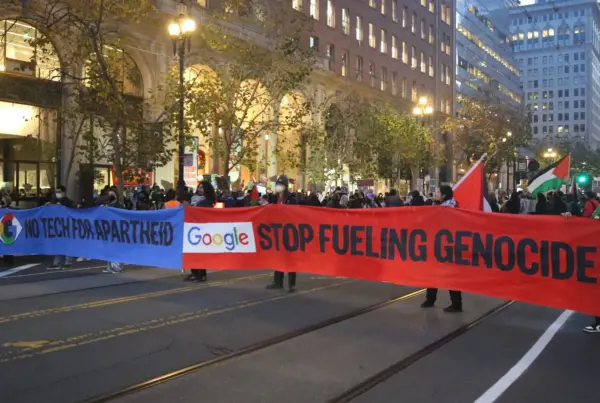Professor Catherine Lutz, Director of Brown University’s prestigious Cost of War Project, gave iGlobenews an exclusive interview. The Cost of War Project can support the redefining of national security priorities by highlighting the failures of a militarized national security policy. A military society is not a healthy society. Domestic priorities need to put human well-being at the top of the agenda.
Diana Maunter Markhof, 6 December 2021
Listen to the audio Article
Brown University Professor emeritus Catherine Lutz, Co-Founder and Co-Director of Brown University’s Cost of War Project at the Watson Institute for International and Public affairs, has spent the past 11 years researching on the true costs of the post-9/11 wars. The important Cost of War Project, which she initiated in 2010 with together with Professor Neta Crawford of Boston University, has become the voice for those advocating a return to basic democratic values. The wars which America has fought have been catastrophic to so many millions of people and the Cost of War Project believes the American public should know the true price they have paid for the many conflicts in terms of lives lost or ruined, tax dollars spent and strengthening the military industrial complex (MIC).
Diplomacy is a vital tool in American foreign policy, but its role is being seriously reduced by the growing power of the Pentagon and the MIC. The US State Department budget has shrunk tremendously while the already huge Pentagon budget constantly increases, regardless of who sits in the White House or controls Congress. Since 2001, the US war on terror has reshaped spending priorities. Instead of investing in health care, education, social services and infrastructure, two thirds of the federal discretionary budget go to the military and the associated MIC. “All that’s left must fit into the small pie chart”, says Professor Lutz, who notes that “all the other human needs are squeezed out.” The wars in Iraq and Afghanistan have “thrown gasoline on the fire that has been raging since WWII”, ultimately morphing the US into a “warfare state”.
The Project has informed and educated the public and initiated a discussion on the true costs of the post-9/11 wars and conflicts of the American military empire and their implications for civil society. Economists at the Project have estimated that USD 14 trillion have gone to military-related contractors since the start of the war in Afghanistan in 2001. These phenomenal sums have made corporations such as Raytheon and Lockheed Martin benefactors of what one could cynically call the “business of war”.
Why are we at war? What have we achieved? Is there another solution to this? What about the after-the-fact rationalizations for these post-9/11 wars? The US did not liberate women in Afghanistan, nor did it bring democracy to Iraq or regional stability to the Middle East, quite the contrary. According to Professor Lutz, it is not surprising that one hears so little in the media about the true costs of war. The Pentagon, which has its own media and information department, is uninterested to have “this full picture of mass death in front of the American public”.
Professor Lutz strongly advocates the involvement of the American public in decisions to go to war. What are the opportunity costs of war? What are the costs of supporting 800 military bases around the world? What are the costs of a new cold war with China? The Cost of War Project is providing some answers to these important questions.
The MIC learned from Vietnam and has spent billions to polish its image and block negative reporting and facts from entering the mainstream discourse. Yet many myths persist which according to research by the Cost of War Project are simply wrong. Myths such as the true costs of war and job creation through military spending. This ‘culture of war’ does not nearly create the number of jobs the same amount of domestic spending would create. War economies benefit a few – the same few, whereas peace spending is constructive and beneficial to society at large.
Many citizens are wary of speaking out. Not supporting the military is seen – and encouraged to be seen – as being unpatriotic. Official press releases from the Pentagon get taken “much too seriously than they ought to”. In addition, there is a ‘real strong cultural climate’ that makes journalists less inclined to question basic assumptions, e.g., that wars are always justified, that they are fought smartly and cleanly, that they will be short and that few civilians are dying or their means of existence destroyed. Some universities have filled the gap in gathering and reporting such information and, in so doing, have given lawmakers new facts on which to base their decisions. The Cost of War Project has informed the public and can help reverse this trend to ever-increasing military spending, which started in the 1950s.
Professor Lutz’ recent book, “War and Health: The Medical Consequences of the Wars in Iraq and Afghanistan”, provides a detailed look at how war affects human life and health far beyond the battlefield. It is a critical examination of the indirect casualties of war, examining the medical infrastructure and health outcomes not only on the battlefield and but also in hospitals, homes, and refugee camps, both during and after hostilities.
Professor Lutz hopes that the pandemic will trigger a rethinking on waging war. Could the US have fared better through this crisis if all or a significant amount of the money spent on the post-9/11 wars had been invested in health, education and infrastructure? And what of the impact of the chaotic US withdrawal from Afghanistan? The Covid crisis might serve as a reminder that “our priorities are misplaced “. The Cost of War Project can support the redefining of national security priorities by highlighting the failures of a militarized national security policy. She emphasizes that “a military society is not a healthy society” and that “domestic priorities need to put human well-being at the top of the agenda.”
Picture: Professor Catherine Lutz ©
Other Articles Which Might Interest You
20th Anniversary of US Iraq Invasion: They Never Leave





